Peter Ball abuse inquiry: Prince Charles 'misled' by bishop
- Published
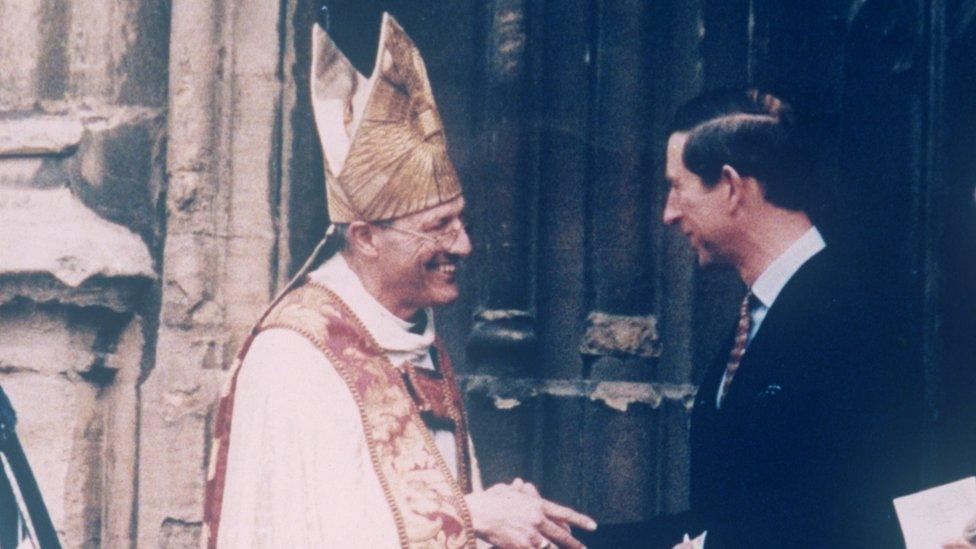
Prince Charles was photographed with the then Bishop of Gloucester Peter Ball in 1993
The Prince of Wales has told an inquiry he did not seek to influence a police investigation into a paedophile bishop.
A written submission from the prince was read to an inquiry into the abuse inflicted by former Bishop Peter Ball.
Prince Charles said he felt "deep personal regret" for trusting Ball when initial reports of abuse emerged, years before he was jailed in 2015.
In a 1997 letter, the prince said of a critic of Ball: "I'll see this horrid man off if he tries anything."
'Deep regret'
In a series of letters between Prince Charles and the Bishop, read to the Independent Inquiry into Child Sexual Abuse, external (IICSA), Ball spoke of a "malicious campaign" against him and "harassment" by "fraudulent" accusers.
In a letter to Ball in 1995, the prince said: "I wish I could do more. I feel so desperately strong about the monstrous wrongs that have been done to you."
In 1997, the prince wrote a letter in which he described an apparent accuser as a "ghastly man... up to his dastardly tricks again".
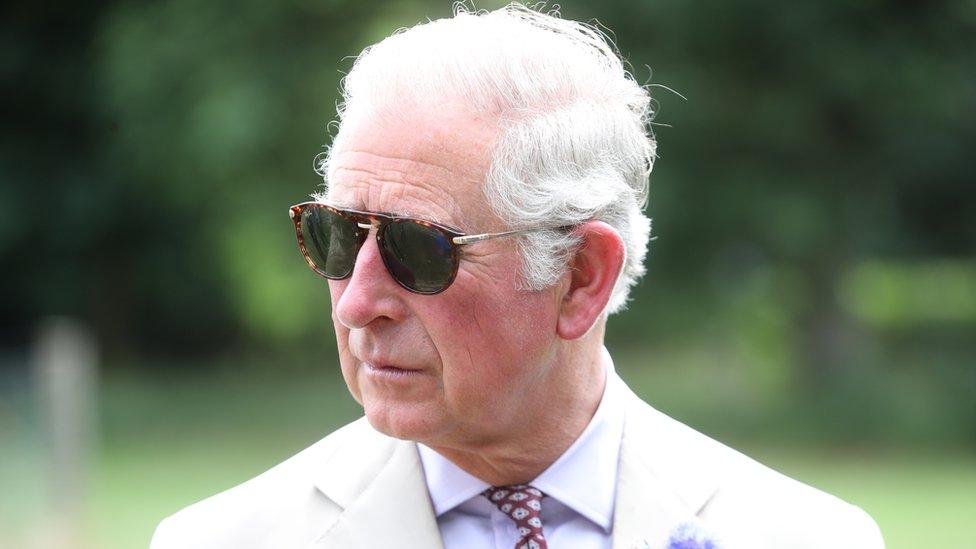
The Prince of Wales said he was "misled" and his "heart goes out to the victims"
In 2015 Ball, 86, was jailed for 32 months for offences against 18 teenagers and men.
In the written submission, read by the counsel to the inquiry Fiona Scolding, the prince said he had been "misled" and at the time "there was on my part a presumption of good faith" in relation to Ball.
He added: "I first became aware of Peter Ball during the 1980s. He was later appointed Bishop of Gloucester when he became my local diocesan bishop.
"Peter Ball told me he had been involved in some sort of 'indiscretion' which prompted his resignation as my local bishop.
"He emphasised that one individual that I now understand to be Mr Neil Todd had made a complaint to the police, that the police had investigated the matter, and the Crown Prosecution Service had decided to take no action.
"That sequence of events seemed to support Mr Ball's claim that the complaint emanated from one individual and that individual bore a grudge against him and was persecuting him, that the complaint was false, but that the individual had nonetheless profited from the complaint by selling his story.
"Events later demonstrated beyond any doubt, to my deep regret, that I, along with many others, has been misled."
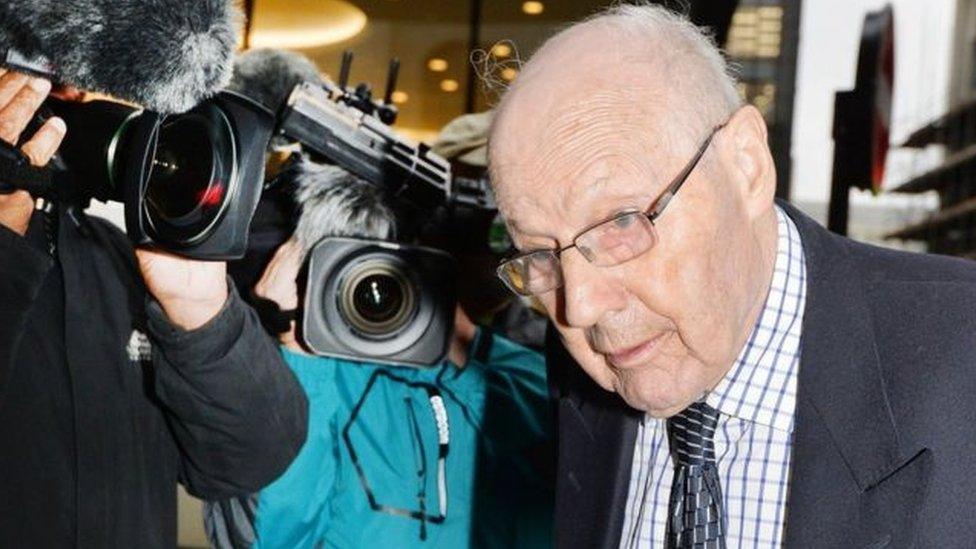
Peter Ball was jailed for sex offences against teenagers and young men which were carried out over 30 years
The prince said in the 1980s and 1990s there was "a presumption that people such as Bishops could be taken at their word and, as a result of the high office they held, were worthy of trust and confidence".
He said: "Throughout my life my position has occasionally brought me into contact with prominent people who have subsequently been accused of serious wrong doing.
"Rather than rushing to private judgement I have always taken the view that the judicial process should take its course."

Analysis: BBC Royal Correspondent Nicholas Witchell
Knowing what we know now, there's no doubt the prince's letters to Bishop Ball in the 1990s - in particular his expression of sympathy for the "monstrous wrongs" supposedly done to him - are embarrassing.
Looking back at them they reveal a degree of naivety on the part of the prince.
But it must be said Charles wasn't alone around that time in demonstrating a disinclination to doubt the bona fides of a supposedly charismatic figure.
As we now know, major institutions like the Church, NHS, BBC, were notably reluctant to ask uncomfortable questions and to make proper inquiries.
In the prince's case there is a sense, as his statement says, of "deep personal regret" that he was one of the many deceived by the bishop.
The fact the prince has opened his personal correspondence for scrutiny is a recognition, his officials say, of the importance the prince attaches to the inquiry's work.
Above all, there's a sense of frustration and anger that what Charles calls his "presumption of good faith" was so grievously betrayed.

The prince added that that the "true context and details" of complaints against Ball "did not come to my attention until the time of Mr Ball's trial and conviction in 2015".
"I ceased contact with Mr Ball once the judicial process had concluded, and he was found guilty of serious offences against young people," he said.
"My heart goes out to the victims of abuse and I applaud their courage as they rebuild their lives and so often offer invaluable support to others who have suffered.
"It remains a source of deep personal regret that I was one of many who were deceived over a long period of time, about the true nature of Mr Ball's activities."
The inquiry continues.
- Published26 July 2018

- Published25 July 2018
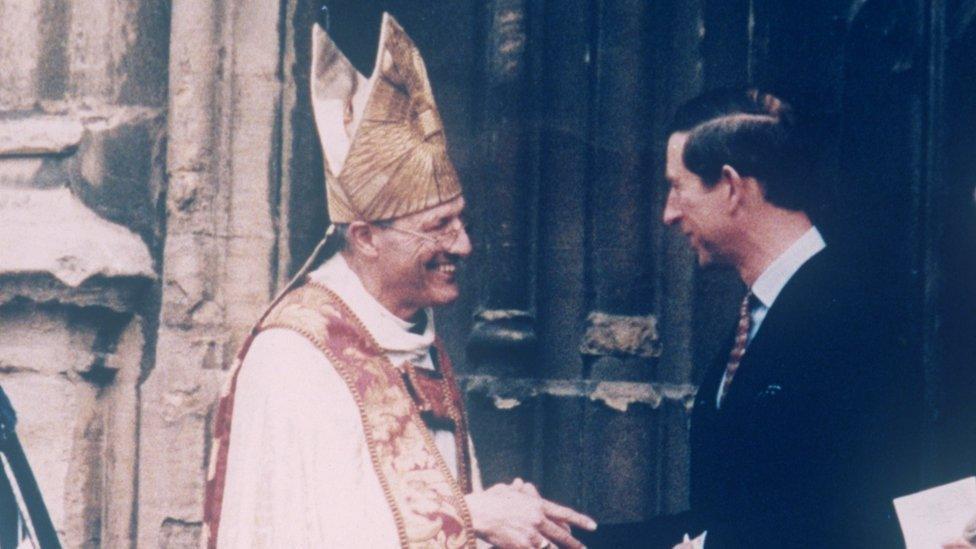
- Published24 July 2018
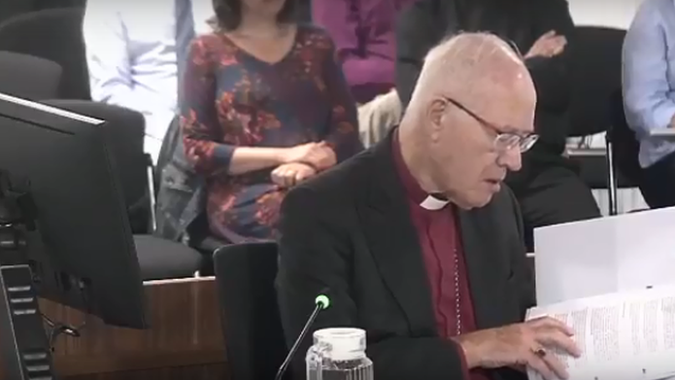
- Published23 July 2018

- Published19 July 2018

- Published6 June 2018
